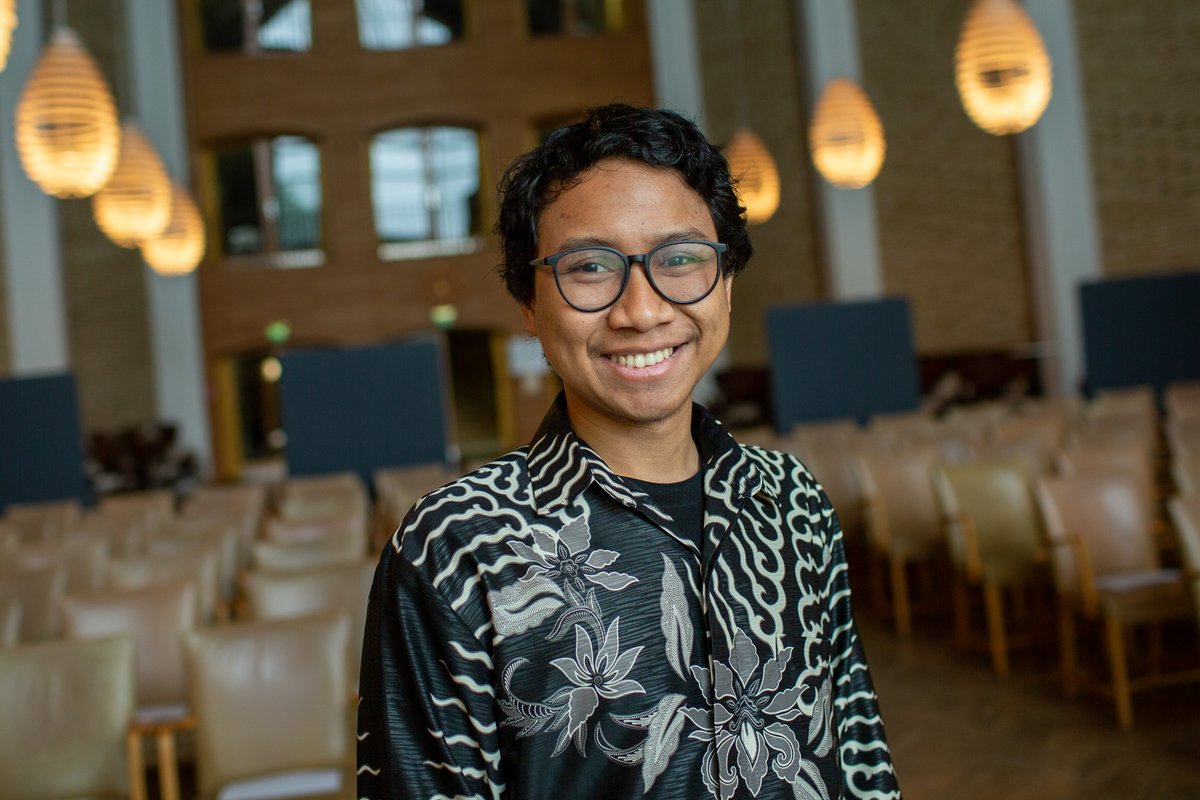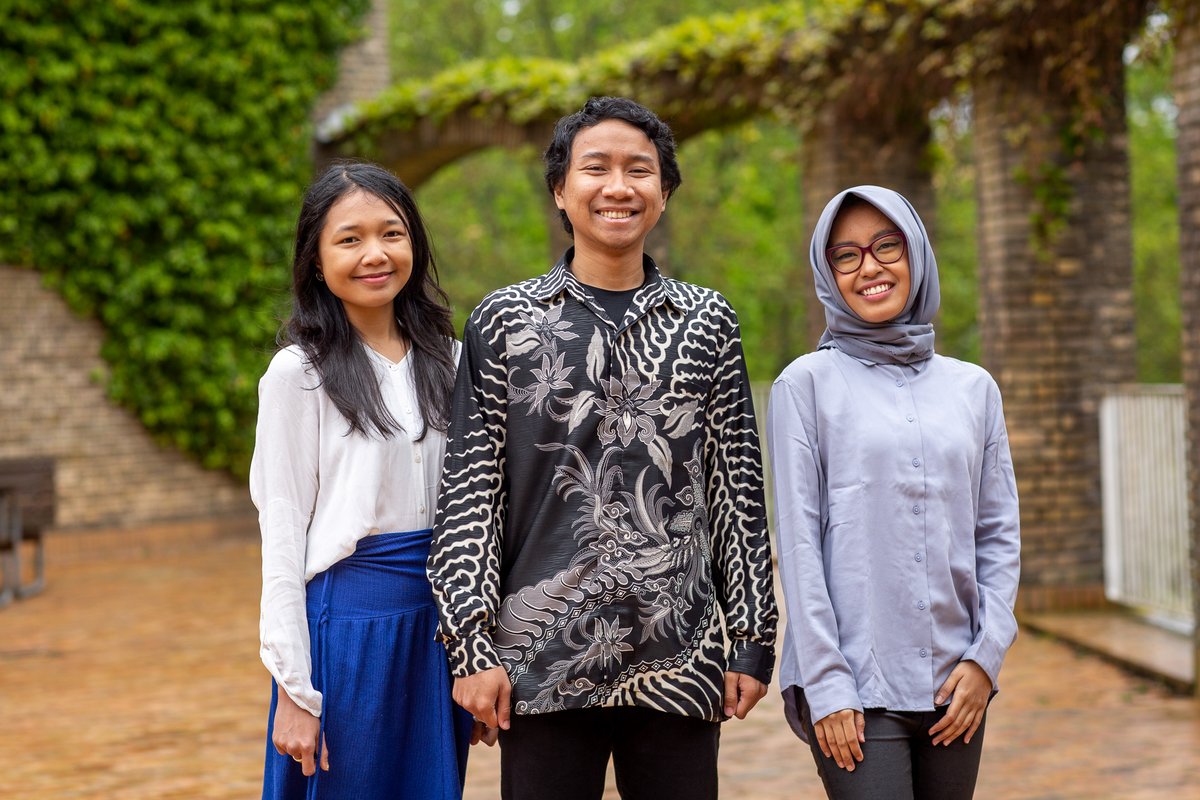
“Denmark is such a cool place to study abroad, both literally and figuratively. It's also my first time traveling to a different country, so I thought ‘the first time you do something has to be memorable!’” he says, smiling. “Denmark is also renowned for its quality education and safety, making it an ideal place for a first-time international student like me.”
“By coming to Denmark, I also hoped to get international exposure and experience various cultures through meeting students from different backgrounds. The independent study style, close student-professor relationships, and engaging learning methods in Denmark's universities were also major draws. Additionally,” Farhad explains, “active learning, class discussions, and many hands-on projects make the whole learning process more fun and interesting.”
“I came to Aarhus University because of the MSc in bioinformatics program, an English-taught program that suits my needs and aligns perfectly with my academic and career goals, including research, employment opportunities, and scholarships. The program also offers a project course where we can collaborate with a company, which I did in my second semester. I believe it’ll lead to lots of new opportunities.”
“So far, my experience at Aarhus University has been incredibly fulfilling. I’d say university life here is pretty chill as we only have three courses per semester, which means we have a lot of spare time. For that reason, I have to find the balance between studying, part-time work, and having a social life.”
Regarding AU’s educational environment, Farhad says, “I really appreciate the interactive learning approach, including oral exams, which have made my learning more fun and intellectually stimulating. Even though it’s new to me, I’ve found preparing for the exam to be quite enjoyable: making a study group and mock-up test, writing the disposition, and debating all night – something new and different. “
“I’ve also met many people who’ve been really helpful and kind and have become an important aspect of my life here. I've had the pleasure of meeting great individuals, both university staff and students, who have made my time in Denmark truly enriching and positive.”
“Adapting to the seasonal changes in daylight hours has been one of the most challenging aspects of my time in Denmark, especially as someone accustomed to equatorial climates. Aligning my daily schedule with fluctuating daylight hours throughout the year, including accommodating prayer times as a Muslim, has been a significant adjustment.”
“Additionally, navigating social occasions as a non-drinker or party-goer in a culture where social events often revolve around drinking has been challenging,” he explains. “However, I've come to appreciate this unique aspect of my experience and have learned to embrace it.”
“One pleasant surprise has been the Danish weather, which has not been as gloomy and rainy as often portrayed (or maybe I saw too many memes).” He smiles widely at this comment. “The difference in rain patterns, which are better than in my home country, which has a tropical rainforest climate, has made it manageable. However, I’m still not used to the winter weather and wind - sometimes I even wear a hoodie in the summer,” Farhad exclaims, chuckling.
“I've actively prepared for my future career during my studies by attending career-related events organised by AU Career for International Students, which have included workshops on CV and cover letter writing, networking, and utilizing platforms like LinkedIn - participating in job fairs has also given me insight into potential career opportunities. I’ve also collaborated with Omiics to do my vocational training project in bioinformatics, where I got a taste of the Danish work environment.”
“On top of all that, I’ve met some fellow Indonesians already working in Denmark and asked them for career advice and to bless me with their wisdom.”
“I usually go to a cafe on the weekends to read and enjoy my time alone or with friends. My go-to spot, Løve’s Bog- og Vincafé in Nørregade, is open until night, they’ve got great coffee, and they’re close to the mosque in Nørre Alle.”
"A new favorite spot in Aarhus is Dokk1, (a culture house, uniting public institutions like library, citizen services, and national TV)!This place is perfect for some relaxation and book reading, and the view is absolutely stunning. Plus, the bonus is that you can enjoy some PlayStation 5 gaming if boredom strikes!" Farhad laughs.
“Besides that, I love to walk around the forest and lake behind my dorm, Skjoldhøjkollegiet. If you’re lucky, you can see a variety of wildlife, which I think is great! Mindlessly cycling around the city is another activity I enjoy in my spare time.”
“Before arriving in Denmark, I began learning Danish through Duolingo to acquire basic vocabulary. However, I found that it was not as effective for conversational skills. After arriving here, I took the first module of the Danish class offered by the municipality and passed the exam. If I remember correctly, the first module takes around 3 months and the course is free, you just need to pay a deposit that will be returned to you once you pass the module. However, I decided to not continue. Despite that, I still learn Danish online and practice with my Danish friend (even though I'm not that consistent), enabling me to speak conversationally with others at a basic level (i.e. interacting with a cashier in a supermarket or a barista in a café).”
“I got my first job in Denmark as a cleaning assistant and worked depending on the schedule. Generally, though, I only worked on weekends since I wanted to focus on my studies during the week. In September, I was offered a job as a student programmer at a company I collaborated on my project with during the spring semester.”
“It offers valuable work experience and a chance to build a professional network within the Danish job market. Additionally, it provides insights into the Danish work-life balance, which is highly valued in local workplaces.” Farhad further explains, “financial independence gained through this job allows me to cover living expenses and potentially save for the future, making it an integral part of my career preparation here.”
“What surprised me the most about working in Denmark was the competitive wages I’ve received for both my jobs. Despite working up to 12 hours per week, I can still comfortably cover my monthly expenses and even save up some money.”
“Moreover, the work culture emphasizes open discussions, treating employees as equal peers, and promoting a healthy work-life balance. These Danish values ensure both productivity and employee well-being, which is something I highly value.”
“I am open to any opportunities that lie ahead. Ideally, I will find a job here and stay longer in Denmark, but who knows? I look forward to seeing where time and experience lead me.”
